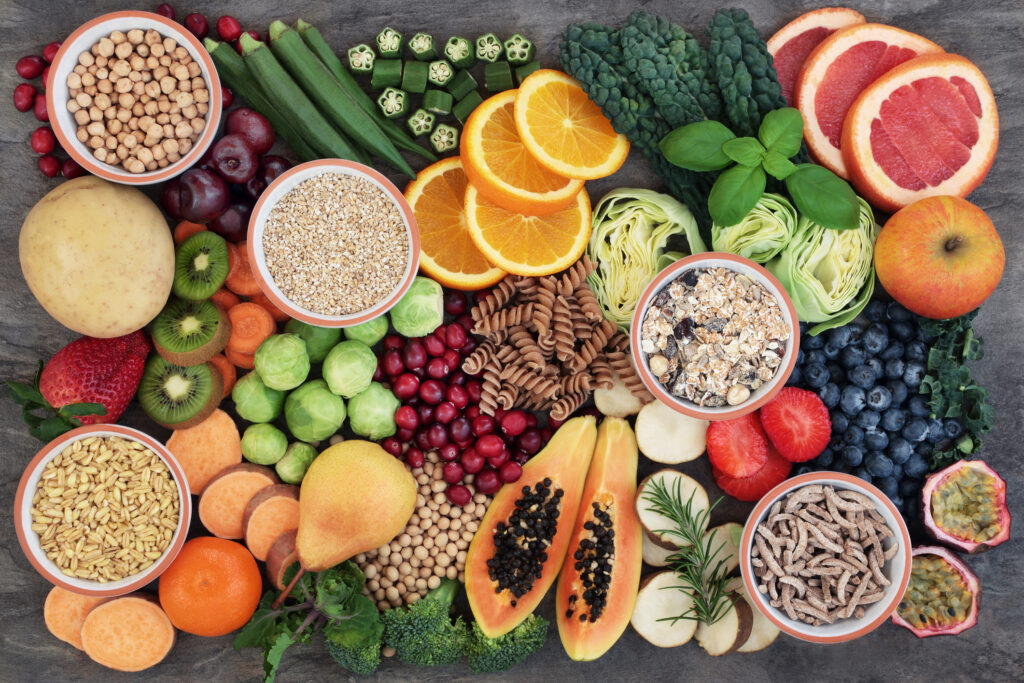The Future Is Green for Plant-Based Alternatives
By Jen Lyons, Sensient Flavors & Extracts, Marketing Manager
As published in the November 2022 issue of Perfumer & Flavorist
From high-end restaurants to fast food franchises to the grocery aisle, the plant-based alternative market is continually evolving, and while these products may still be a novelty to some, there appears to be real staying power for the market. According to Mintela, consumers will “mix and match” animal and plant-based alternatives over the next few years, creating growth opportunities.
As demand for plant-based alternatives increase, food and beverage manufacturers will face a number of challenges and opportunities. Manufacturers must deliver innovative solutions designed to overcome taste, mouthfeel and texture challenges typically associated with plant-based alternatives. They also need consumers to not just try these products, but to like them so much that they keep buying them.
Planting the Seeds for Success
Manufacturers are well aware of the increased wallet share that plant-based items are getting. They also know that if consumers’ demands for taste, value and perceived health and/or environmental benefits aren’t met, that window could close.
Meeting these demands can be challenging in today’s economy. While plant-based alternatives saw massive growth in 2020, Mintel research indicates that growth has since stalled. On top of this, inflation is dampening the markets as consumers react to uncertainty by returning to the familiar.
Despite inflation and other short-term challenges, meeting consumers’ demands brightens the longterm future of the plant-based alternative market. Consumers want more variety, which gives food and beverage manufacturers a target audience for new product development, providing a runway for messaging around value and versatility.
Tastebuds Tell the Tale for Sustained Growth
As plant-based alternative tastes improve and prices decrease, the larger market share will likely open. That’s because a “better for you, better for the planet” message is already taking hold.
- Nearly half of consumersb globally agree that plant-based alternatives can be the future of the food industry.
- Parents are seeking convenient plant-based alternatives with clean ingredients and high protein, according to the above-mentioned Mintel survey.
- 67% of U.S. consumersc agree that they would consume more plant-based products if there was a greater variety of flavors.
These are positive trends for the plant-based alternative market that support the growing desire for sustainability and wellness, and a balancing act must be maintained to satisfy consumers. Environmental impact and health benefits are significant, but taste rules all; more than 70% of U.S. consumersd say that taste is the most important factor when they are looking at plantbased products. They want plant-based burgers that “bleed” and cheeses that “melt” like the real thing.
As food and beverage manufacturers seek to deliver on consumer demand for authentic, all-natural taste in plantbased alternatives, many flavor and taste technologies can provide a similar experience to animal-based products. For example, the protein sources used in many meat alternatives can cause dryness in a finished application. By adding the right flavors and technologies, manufacturers can combat the dryness and off-notes and deliver a moist and juicy product that tastes and feels like animal protein. Similarly, many dairy alternative beverages have the same unwanted notes and are missing the creaminess from a traditional dairy product; masking solutions can fight those off-notes while other boosting technologies can add back the creaminess. Many of these solutions can label as a natural flavor, giving consumers the clean label they desire.
Keep it Simple, Keep it Clean
Food and beverage manufacturers don’t need to exhaustively explain why plant-based alternatives are good for consumers or the environment. Simple, streamlined messaging focused on clean labeling and fewer ingredients are most likely to resonate.
A recent article in Supermarket Perimetere, for example, pointed out that 10% of consumer conversations about plant-based foods centered on clean eating. That’s likely to rise, so if a product can be presented as authentic and natural, consumers are likely to give it a try and, hopefully, make it a regular purchase as long as it tastes good.
How can manufacturers lead the conversation?
Education. Talk about what “plant-based” actually means. That’s key now and will be even more so going forward. As the plant-based industry grows in size and scope, consumers will be flooded with claims. Here, again, clean labeling helps, as a lot of marketing clutter can be eliminated with a label that can be easily read and understood while standing in the grocery aisle.
This will also be beneficial when the U.S. Food & Drug Administration rolls out regulations for plant-based foods. Several options are under consideration right now, but a clean, simple label will likely survive scrutiny without being forced to make substantive changes.
Innovating for the Future
The plant-based alternative market has surmounted significant challenges in recent years. Consumers went with the familiar and comfortable during the pandemic, and rising prices also kept some buyers away. Still, the diversity and quality of plant-based products continue to grow, and research shows that consumer desire for what these alternatives offer is there. Now manufacturers need to continue their efforts to improve messaging, diversity and, above all, product taste. If they do so, they’ll be well positioned to innovate and capture a significant portion of this exciting market space.
astore.mintel.com/report/the-future-of-animal-proteins-meat-alternativesmarket-report
cSensient Primary Research, Sensient Proprietary Survey
ewww.supermarketperimeter.com/articles/8437-plant-based-trend-predictionsfor-2023
